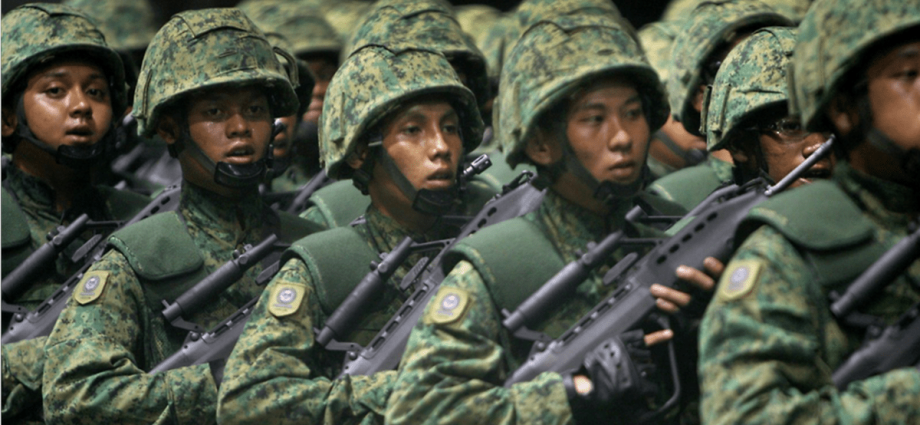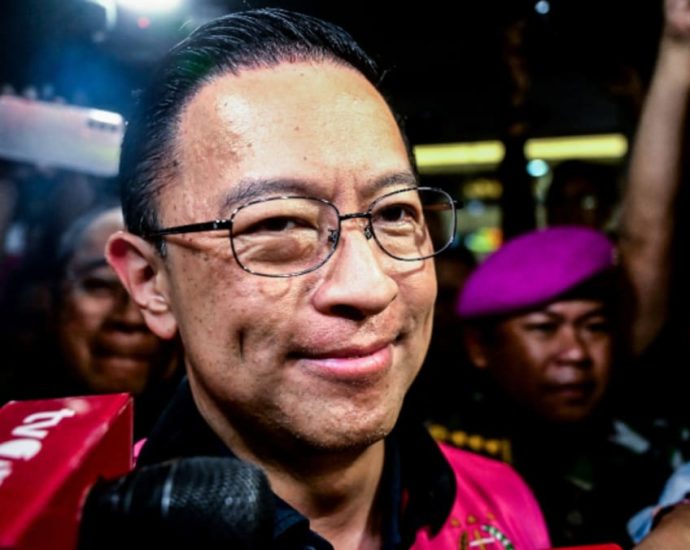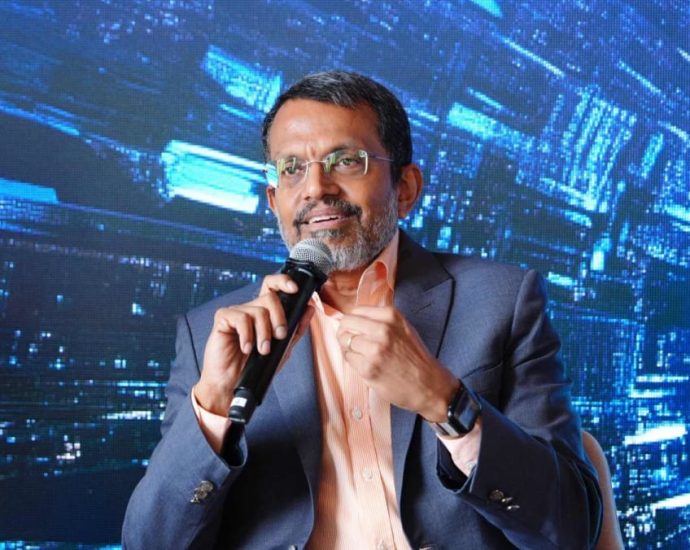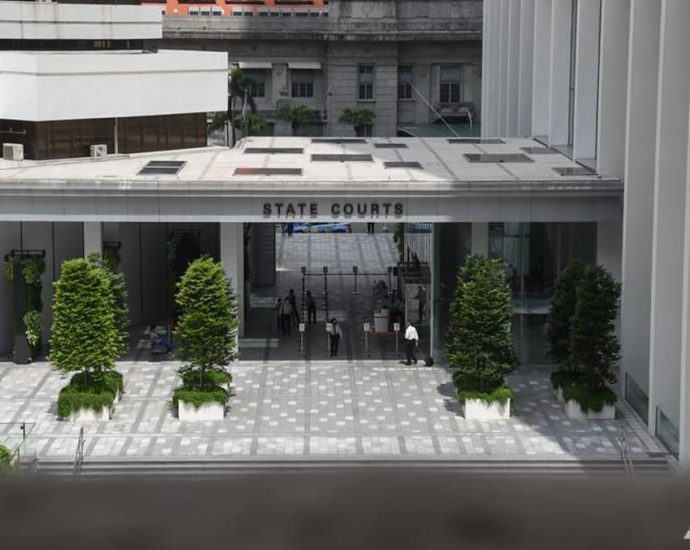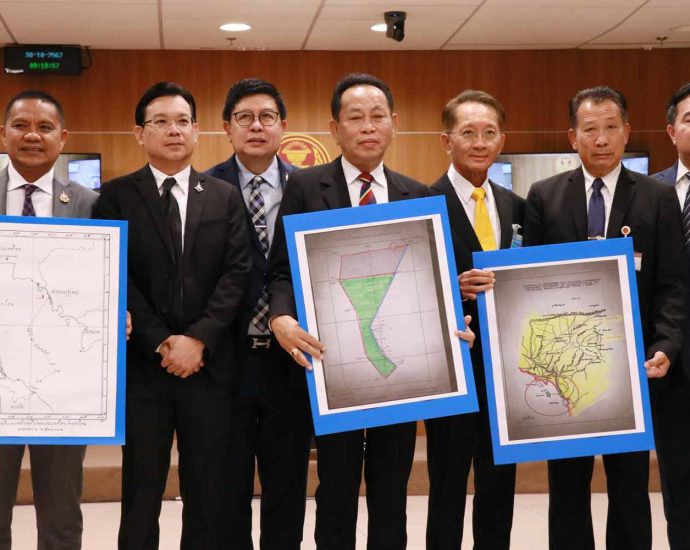National servicemen to receive S$200 LifeSG credits in November
SINGAPORE: About 1.2 million past and present national servicemen will receive S$200 (US$151) in digital credits that can be redeemed on the LifeSG mobile app from November. The credits are in recognition of their “contribution to Singapore’s defence and security”, the Ministry of Defence (MINDEF) and the Ministry of Home AffairsContinue Reading
Forget witches and zombies, Chinese youths are dressing up as celebs and memes this Halloween

SINGAPORE: Chinese youths are getting into the spirit of Halloween by ditching conventional spooky get-ups like witches, zombies and vampires – taking to the streets instead as their favourite celebrities, internet memes and homegrown brands.
Celebrating Halloween has increasingly caught on in many parts of Asia in recent years.
In China, young party goers and trick-or-treaters were seen showcasing their individuality and creativity through their costumes.
A bold choice (or not), one man dressed up as US Republican presidential nominee Donald Trump, which drew applause on the internet. He was eventually led away by police.
Another creative costume was one partygoer’s decision to go as the new Mate XT phone from Chinese tech giant Huawei. The phone launched hours after Apple debuted its new IPhone in China in September. Its tri-fold design became a popular meme in China, with many netizens comparing it to an emperor’s memorial scroll, which also unfolds in the same manner.
Despite heavy police presence in Shanghai, the usual superheroes, villains, and monsters were out in full force in Zhongshan park, along with popular Japanese anime characters.
Religious figures were also a theme among some this year, which raised eyebrows among local authorities. A man dressed up as Jesus and another partygoer in a Buddha costume, were seen being led away by police officers.
Thai court clears influencer of royal insult over online ads
BANGKOK: A Thai court cleared a social media influencer on Wednesday (Oct 30) of royal defamation over online adverts for an e-commerce company, a human rights lawyers’ group said. Thidaporn Chaokovieng was charged with lese-majeste over 2022 TikTok clips promoting Lazada – owned by China’s Alibaba Group – in which sheContinue Reading
Maybank appoints Giorgio Migliarina as its Group Chief Technology and Digital Officer
- Responsible to ensure resilience and robustness of all systems
- Current CTO Mohd Suhail Amar will be senior advisor, Group CEO’s Office
 Maybank has appointed Giorgio Migliarina (pic) as Group Chief Technology and Digital Officer to be effective 1 Nov 2024. With the appointment, Giorgio will be responsible for both technology and digital functions of the group. Giorgio will be responsible to ensure resilience and robustness of all systems, chart the medium-term to long-term technology strategy covering infrastructure, application architecture and design and manage technology demand from business sectors. He will also be responsible to pursue the continued enhancement of the group’s digital capabilities, aligned with the group’s focus on customer-centricity through the Agile ways of working. He will report to the President & Group Chief Executive Officer (PGCEO) of Maybank and become a member of the Group Executive Committee.
Maybank has appointed Giorgio Migliarina (pic) as Group Chief Technology and Digital Officer to be effective 1 Nov 2024. With the appointment, Giorgio will be responsible for both technology and digital functions of the group. Giorgio will be responsible to ensure resilience and robustness of all systems, chart the medium-term to long-term technology strategy covering infrastructure, application architecture and design and manage technology demand from business sectors. He will also be responsible to pursue the continued enhancement of the group’s digital capabilities, aligned with the group’s focus on customer-centricity through the Agile ways of working. He will report to the President & Group Chief Executive Officer (PGCEO) of Maybank and become a member of the Group Executive Committee.
Giorgio, 56 years old, will succeed Mohd Suhail Amar Suresh Abdullah, the current Group Chief Technology Officer, who will assume a new role as Senior Advisor, President & Group CEO’s Office effective 1 Nov 2024.
PGCEO of Maybank, Khairussaleh Ramli said, “Giorgio’s extensive experience and expertise will serve Maybank well in our focus to leverage on technology to deliver our solutions and services to the wide customer base across the group, through resilient, secure, seamless and efficient infrastructure and capabilities.”
With more than 28 years of experience in the telecommunications and high technology sectors, Giorgio held key leadership roles in Olivetti/Infostrada Italy, Telekom Malaysia, Vodafone UK & Italy, McKinsey & Co UK & China and Accenture Singapore.
His experience spans diverse environments across the globe, where he delivered substantial results in a wide range of functional areas. This includes the deployment and management of next-generation networks and ICT infrastructure in both fixed and mobile environment as well as the management of digital products and services for large organisations. Giorgio holds a Master of Business Administration from INSEAD, Fontainebleau, France and a Master of Sciences in Electronic Engineering from Politecnico di Torino, Italy.
Khairussaleh also thanked Suhail for his contributions in improving the bank’s technology transformation journey as well as strengthening Maybank’s in-house technology team.
“We are confident that Suhail will continue to deliver positive impact in his new role as Senior Advisor, in relation to the implementation of Maybank Indonesia’s core banking system and its enterprise-wide agile transformation.”
Former Indonesian minister arrested in sugar corruption probe; state allegedly lost over US$25 million
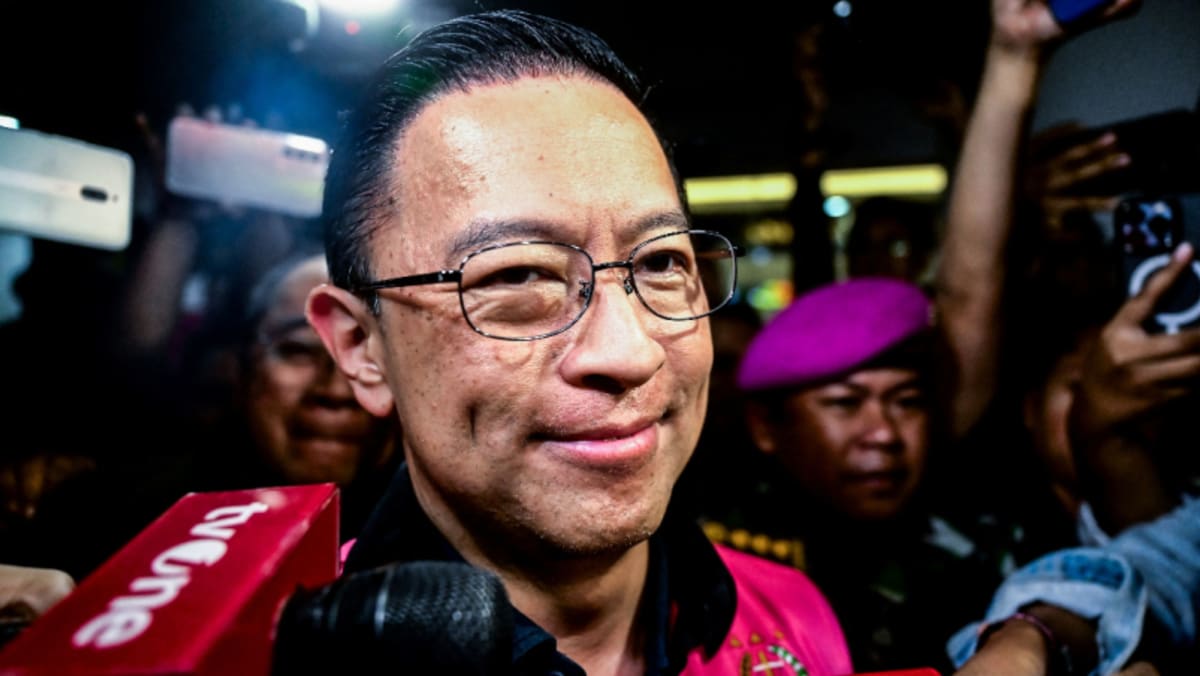
JAKARTA: A minister who served under former President Joko Widodo during the latter’s first term in office was on Tuesday (Oct 29) named as a suspect in a corruption case involving sugar imports that was alleged to have caused state losses worth some 400 billion rupiah (US$25.5 million).
Local media reported that former Trade Minister Thomas Lembong was arrested by the authorities for his suspected involvement in a graft case involving sugar imports managed by his then-ministry between 2015 and 2016.
Mr Thomas served as Indonesia’s Trade Minister between August 2015 and July 2016.
He was accused by the Attorney General’s Office (AGO) of issuing an import permit for 105,000 tonnes (105 million kilograms) of red sugar crystals in 2015. This, they allege, was despite him knowing that there was a domestic surplus of the commodity, local media reported.
The move was said to have violated a 2004 trade and industry ministerial regulation which stated that only state-owned enterprises (SOE) are allowed to import raw sugar.
The AGO has since also denied claims that Mr Thomas’s arrest was politically motivated.
An investigations director from the AGO, Mr Abdul Qohar, said that the process was carried out in accordance with relevant procedures.
“Whoever the perpetrator is, when solid evidence is found, the investigator will designate the individual as a suspect,” he was quoted as saying by local media Tempo.
Mr Thomas’s arrest was made following an investigation that started in October last year, involving 90 witnesses. The former minister was detained at the Salemba Detention Centre in Jakarta on Oct 29 along with another suspect, known to be the business development director of a state trading firm PPI.
“At the time, the suspect, as trade minister, granted the import license without first coordinating with the relevant state agencies,” Mr Abdul Qohar said, as quoted by The Jakarta Globe.
In January 2016, Mr Thomas allegedly signed a letter, ordering PPI to become a state-owned firm (SOE) in order to fulfil the national sugar needs and stabilise the commodity’s price in the country.
PPI was also tasked to work with national sugar producers to produce 300,000 tonnes of white sugar. It worked with at least eight private sugar companies despite the 2004 ministerial regulation.
Both Mr Thomas and PPI’s business development director are suspected to have known about the PPI’s cooperation with these private companies.
AGO investigators also claimed that PPI had bought refined sugar from private firms, despite these companies selling the commodity directly to consumers for 16,000 rupiah per kilogram, higher than the highest retail price of 13,000 rupiah per kilogram, resulting in state losses in the sale.
“We estimated the state loss incurred, (it was) done by experts which took a long time because it is not a simple and ordinary case,” Mr Abdul Qohar said at a press conference in Jakarta on Oct 29 which was also broadcasted on the AGO’s Youtube channel.
The alleged corruption by the suspects amounted to 400 billion rupiah (US$25.5 million) in state losses. The profit obtained by the private companies should have gone into state trading firm PPI, the AGO said.
The prosecutor added that the import licence was granted to a private company identified as PT AP, although only state-owned companies are authorised to procure the commodity from foreign sources under the 2004 trade and industry ministerial regulation. This was also done despite a ministerial coordination meeting concluding that the national stock of the commodity was already in surplus.
Local media reported that Mr Thomas was a close ally of Mr Widodo, and was said to have been an economic advisor and speechwriter for the former president at one point.
Khon Kaen Zoo gets spooky for Halloween

The Khon Kaen Zoo is inviting visitors to join its Halloween event on Thursday with themed decorations all ready for photo shoots at its popular hippo zone.
The global fame of the pygmy hippo Moo Deng in Chon Buri has led to a surge in Thai and foreign visitor numbers at the zoo in Khao Suan Kwang district of Khon Kaen, where they can see the 5-month-old pygmy hippo Moo Duang.
The zoo posted photos on its Facebook page of keepers dressed as spooky characters, inviting people to visit during Halloween week.
Many activities are available for tourists, such as feeding a variety of wildlife including Moo Duang and others such as capybara, black bear, sun conure parrots and white rhinoceros, and enjoying the African seal show. A water park on the mountain is an added attraction.
The zoo is open seven days a week from 8.30am to 4.30pm.

Five-month-old Moo Duang at the Khon Kaen Zoo. (Photo: Chakkrapan Natanri)
Palestine’s economy teeters on the brink after year of war – Asia Times
The Palestinian economy has been devastated beyond recognition. Israel’s intense military operations in Gaza have led to unprecedented destruction, wiping out much of the enclave’s essential infrastructure, private property and agricultural resources.
Meanwhile, the occupied West Bank is also under severe strain. Similar patterns of destruction, alongside rising settler violence, land confiscations and expanding settlements, have left its economy buckling under the pressure of mounting public debt, unemployment and poverty.
Gaza’s economy was being suffocated even before the war. A blockade imposed by Israel in 2007 has severely restricted the import and export of goods, while fishermen were limited to a six-mile zone, crippling their ability to earn a livelihood.
The blockade caused Gaza’s GDP per capita (a measure of the wealth of a country) to shrink by 27% between 2006 and 2022, with unemployment rising to 45.3%. This gave rise to a situation where 80% of the population depended on international aid.
In addition to the economic blockade, Gaza suffered massive physical destruction due to Israeli military operations in 2008–2009, 2012, 2014, 2021 and 2022. Yet the cumulative effects of 16 years of blockade and military attacks are minor compared to the sheer destruction caused by the current war.
A report by the UN’s trade and development wing (Unctad) has revealed that in the space of just eight months, between October 2023 and May 2024, Gaza’s GDP per capita fell by more than half. The economic situation now is almost certainly worse.
According to the report, which was released in September 2024, Gaza’s GDP dropped by 81% in the final quarter of 2023 alone. The report concluded that the war had left Gaza’s economy in “utter ruin,” warning that even if there was an immediate ceasefire and the 2007–2022 growth trend of 0.4% returns, it would take 350 years just to restore the GDP levels of 2022.

The only sectors still functioning are health and humanitarian services. All other industries, including agriculture, are at a near standstill. The destruction of between 80% and 96% of agricultural assets has led to rampant food insecurity.
The scale of destruction in Gaza is unprecedented in modern times and is happening under the world’s gaze. From October 2023 to January 2024 alone, the total cost of damage reached approximately US$18.5 billion – equivalent to seven times Gaza’s GDP in 2022.
A separate report by the UN Development Program, which was published in May, predicts that it will take more than 80 years to rebuild just Gaza’s housing stock if it repeats the rate of restructuring seen after Israeli military operations in 2014 and 2021. Merely clearing the debris could take up to 14 years.
The war has displaced almost all of Gaza’s population and has thrown people into dire poverty. Unemployment surged to 80%, leaving most households without any source of income. And prices of basic commodities have increased by 250%, which is contributing to famine across the Strip.

The economic crisis has also extended to the West Bank, where GDP has fallen sharply. Military checkpoints, cement blocks and iron gates at the entrances to Palestinian towns and cities, as well as the denial of work permits for Palestinians in Israeli settlements, have resulted in more than 300,000 job losses since the start of the war.
The Unctad report reveals that the rate of unemployment in the West Bank has tripled to 32% since the start of the conflict, with labor income losses amounting to $25.5 million. Poverty is rising rapidly.
Israeli forces have also continued to confiscate Palestinian homes and land. Over the past year alone, 24,000 acres of land in the West Bank have been seized, and over 2,000 Palestinians have been displaced.
This devastation has been exacerbated by Israel’s decision to withhold the tax revenue it collects for the Palestinian Authority, which typically accounts for between 60% and 65% of the Palestinian public budget, as well as a significant decline in international aid. Aid to Palestine has dropped drastically over the past decade or so, falling from the equivalent of US$2 billion in 2008 to just $358 million by 2023.
The Palestinian Authority is facing a massive budget deficit, which is projected to increase by 172% in 2024 compared to the previous year. This financial strain has crippled the Palestinian government’s ability to provide essential services, pay salaries and meet the needs of a population battered by war, displacement and severe poverty.
The road to recovery
For the Palestinian economy to have any chance at recovery, several immediate steps are necessary.
First, international aid should flow into Gaza uninterrupted, and pressure must be applied to ensure that humanitarian aid – particularly food aid – reaches those in need. Data analysis by organizations working in Gaza suggests that Israel is currently blocking 83% of food aid from reaching Gaza.
Second, the destruction of homes, schools and infrastructure must cease. However, this seems improbable as Israel continues to pursue its military goal of destroying Hamas – an objective most analysts believe to be unachievable.
And third, the economic restrictions imposed on Gaza and the West Bank must be lifted. Sustainable development – and any prospect for recovery – cannot be achieved without granting the Palestinian people the right to self-determination and sovereignty over their resources.
This would require new peace agreements, an outcome that appears unlikely at present. But without these crucial interventions, the Palestinian economy will be completely devastated and the humanitarian crisis will worsen, making any future recovery within the lifetime of anyone currently living in Gaza virtually impossible to imagine.
Dalia Alazzeh is lecturer in accounting and finance, University of the West of Scotland and Shahzad Uddin is professor of accounting, University of Essex
This article is republished from The Conversation under a Creative Commons license. Read the original article.
Singapore sets up global fintech network, appoints former MAS chief Ravi Menon as chairman
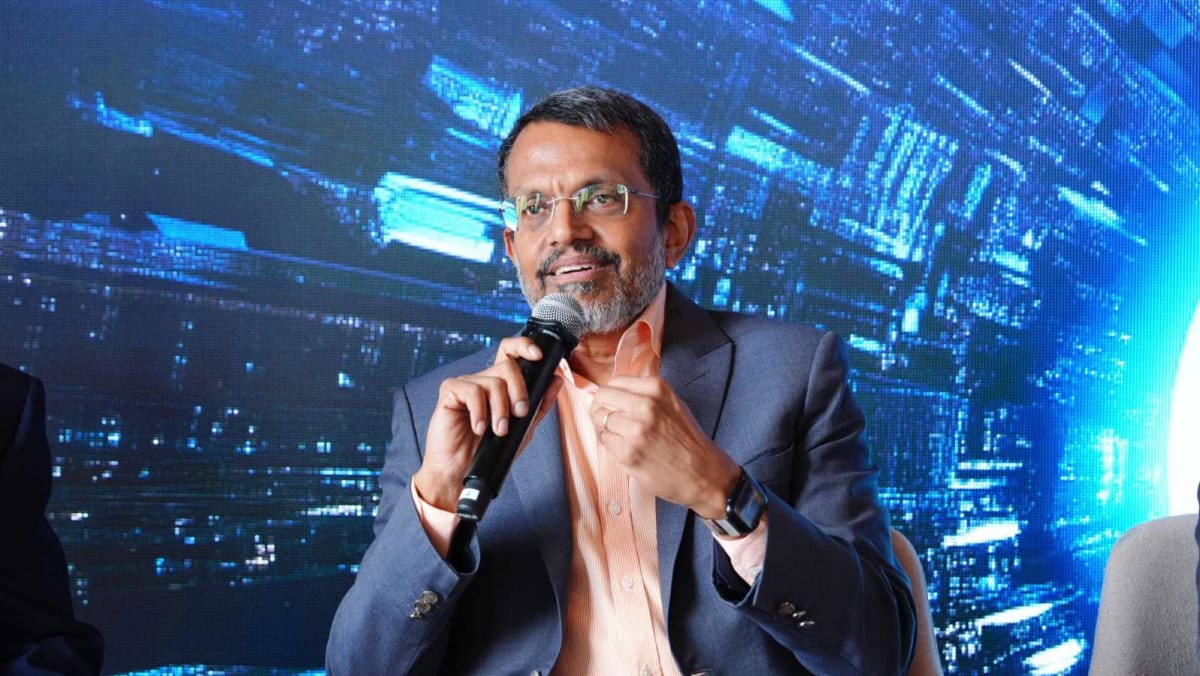
SINGAPORE: The Monetary Authority of Singapore (MAS) has set up a global network to strengthen Singapore’s position as a fintech hub and improve connections with other countries.
The Global Finance and Technology Network (GFTN) will support the central bank’s efforts to develop and grow Singapore’s fintech ecosystem, MAS said on Wednesday (Oct 30).
The network’s mission is to “harness technology and foster innovation through global partnerships”.
Former MAS managing director Ravi Menon will be the chairman of the GFTN board of directors.
When asked why he was appointed to GFTN’s board and how it relates to his role as Singapore’s Ambassador for Climate Action, Mr Menon said the latter is still his main job.
“But as a retiree, I have a little bit of bandwidth, so I can also do this,” he said at a briefing on Wednesday.
He said the connections he made during his time in MAS led to his appointments in both roles and that he remains interested in technology.
“Both are actually issues that are very close to my heart – sustainability and innovation, the planet and people,” he said.
GFTN replaces Elevandi, a non-profit set up by MAS to foster dialogue related to fintech. It organised fintech conferences in several countries, including Japan, Switzerland and Ghana.
Elevandi’s people and assets will move to GFTN, where the work will be scaled up, said Mr Menon.
Besides organising forums, GFTN will offer advisory services, partnerships with digital platforms and investments into technology start-ups with the potential for positive social or environmental impact.
“We will provide these portfolio companies with patient capital, but more importantly, access to a global network of potential partners, buyers and suppliers through our existing platforms,” said Mr Menon.
He said Elevandi’s forum business was doing well, and had more invitations than it could handle. At the same time, it was starting to do some “adjacent” work as people were asking for advice on digital infrastructure.
“We’ve been doing some of this pro bono, we’ve been doing some of this informally, not with the full complement of staffing and capabilities,” he said.
GFTN will have four distinct businesses to grow, and it wants to expand its global footprint.
“It is basically Elevandi on steroids, without the negative connotations of course,” he said. There are currently 40 staff members, but that number is set to grow to “much more than 40 people”.
Man fined for stroking polling officer’s hand after singing song to her during 2023 Presidential Election
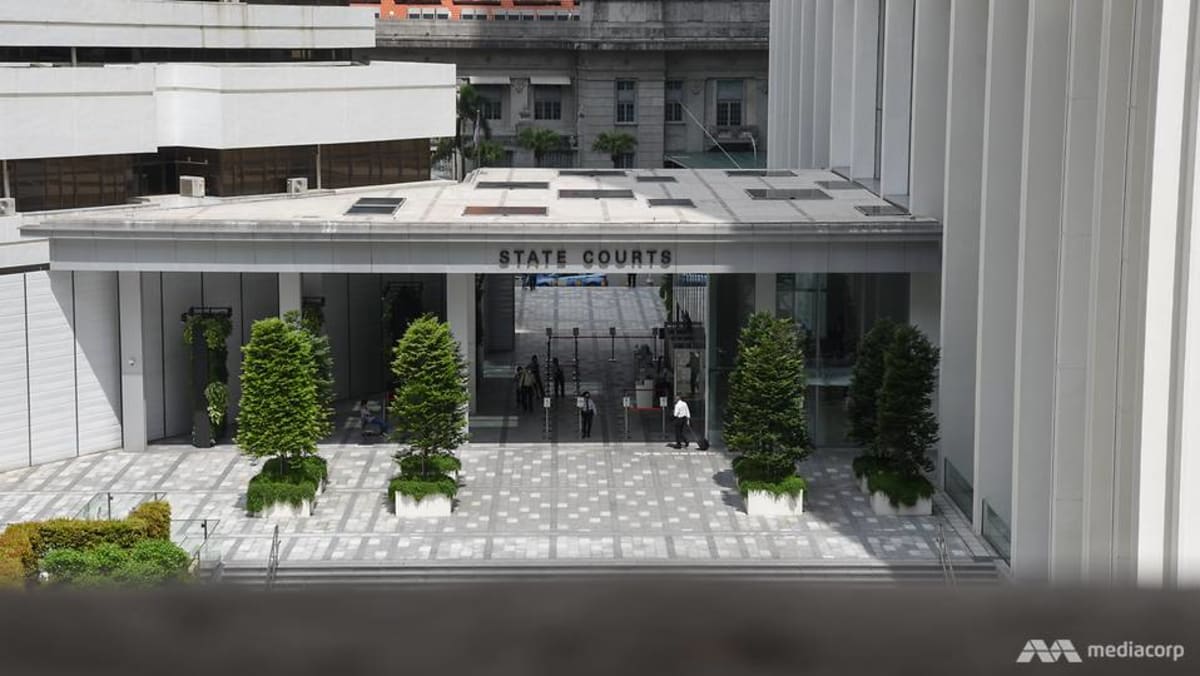
SINGAPORE: A man was fined S$500 (US$378) by a court on Wednesday (Oct 30) for stroking the hand of a polling officer while waiting to cast his vote in the 2023 Presidential Election.
Wickramasinghe Ashley Anura, a 51-year-old Singaporean, pleaded guilty to one count of using criminal force on the 31-year-old female polling officer.
The court heard that the victim was a primary school teacher tasked with being a presiding officer for a polling station in Geylang on Sep 1, 2023.
Singaporeans went to the polls that day to cast their votes for three candidates: Mr Tharman Shanmugaratnam, who eventually won with 70.4 per cent of votes; Mr Ng Kok Song, former chief investment officer of Singapore’s sovereign wealth fund GIC; and Mr Tan Kin Lian, former NTUC Income chief executive.
Wickramasinghe had gone to the polling station at around 9.30am on Sep 1, 2023, with his girlfriend, to cast their votes.
He was ushered to a counter manned by the victim, where he was to be assigned a ballot slip.
The victim, whose identity is protected by gag order, observed that Wickramasinghe reeked of alcohol.
She read his full name to him, and Wickramasinghe burst into song while maintaining eye contact with the victim.
This made the woman feel uncomfortable.
Wickramasinghe then reached out and stroked the woman’s hand.
The victim quickly retracted her hand, and the interaction was observed by a senior presiding officer at the polling station, who told Wickramasinghe to stop.
Wickramasinghe let go and replied: “Wow, security.”
The police were called in and arrested Wickramasinghe, who later admitted that he had been drunk when he touched the victim’s hand.
He has no previous convictions.
SENTENCING ARGUMENTS
The prosecution sought a fine of S$500, which she said was in line with other cases.
While his touch was more fleeting than a previous case, the action was towards a public servant in discharge of her duty, which is an aggravating factor, said the prosecutor.
Wickramasinghe’s lawyer, Mr Jared Lee from Regent Law, asked for a fine of not more than S$500.
He said his client is truly remorseful, has fully cooperated with the authorities and this is his first brush with the law.
Wickramasinghe is “unmarried and stays by himself” and “financially contributes to his aged parents”, said Mr Lee.
To prevent such incidents from occurring again, Wickramasinghe has started taking an opioid blocker before taking alcohol, which blocks the pleasure one feels when consuming alcohol, the lawyer said.
Wickramasinghe regrets his behaviour, which has brought “unnecessary stress” to his family and to the victim, said Mr Lee.
The judge noted that the incident occurred at a polling station and involved a polling officer. She also noted Wickramasinghe’s conduct – how he burst into song and “mockingly replied” when told to stop, on top of being drunk.
However, she noted also his early plea of guilt and mitigation points.
She ordered a fine of S$500, with two days’ jail in default if he did not pay.
Wickramasinghe paid the fine in full.
The penalties for using criminal force are a jail term of up to three months, a fine of up to S$1,500, or both.
Opposition wants to cancel Thaksin’s joint resources MoU with Cambodia
Palang Pratcharat says Thailand could end up losing sovereign territory

The opposition Palang Pracharath Party (PPRP) wants Prime Minister Paetongtarn Shinawatra to revoke a 2001 memorandum of understanding between Thailand and Cambodia on joint development of oil and gas resources in a disputed area of the Gulf of Thailand.
The MoU was signed during the government of her father, former prime minister Thaksin Shinawatra. The PPRP claims it could mean Thailand losing some of its territory.
MP Thirachai Phuvanatnaranubala, head of the PPRP’s academic committee, said during a press conference at the parliament on Wednesday that the 2001 MoU indicated that Thailand and Cambodia acknowledged an area in the Gulf of Thailand for joint development. The document also accepted Cambodia’s territorial claim made in 1972 to half of Koh Kut island, which is in Trat province, he said.
“I have no problem with the government’s intention to discuss joint investment with Cambodia. But I will object if the government uses the 2001 MoU as a framework for the discussions, because not only is it illegal but also results in a territorial loss for Thailand,” said Mr Thirachai, a a former finance minister.
PPRP executive member ML Kornkasiwat Kasemsri said Thailand and Cambodia had discussed maritime demarcation in 1970. At the time, Thailand based its boundary on the 1958 Geneva Convention on the Law of the Sea, but Cambodia declared its territorial waters in 1972 without reference to any international law.
He said the Thaksin Shinawatra government started the negotiations that led to the 2001 MoU only two months after it took office. The negotiations began on April 21, 2001, and the MoU was signed on June 4, 2001, after 44 days of negotiations, he said.
The 2001 MoU resulted in an overlapping claims area of about 26,000 square kilometres, although the area had not been acknowledged by any legal document, ML Kornkasiwat said.
“The Palang Pracharath Party urges the prime minister to revoke the 2001 MoU as soon as possible, because a Cambodian map attached to the 2001 MoU included the sea off Trat, Koh Kut and some Thai territory. Thailand is at a disadvantage and risks territorial loss,” ML Kornkasiwat said.
PPRP MP Chaimongkol Chairop (Sakhon Nakhon) said the party, led by Gen Prawit Wongsuwon, would fight both inside and outside parliament to protect Thai territory.
Deputy Prime Minister and Defence Minister Phumtham Wechayachai said the government had done nothing with any bearing on Koh Kut and he did not know why the issue was raised at this time.
The government would do its best to protect Thai territory, he said. Mr Phumtham is a member of the Pheu Thai Party led by Ms Paetongtarn.

